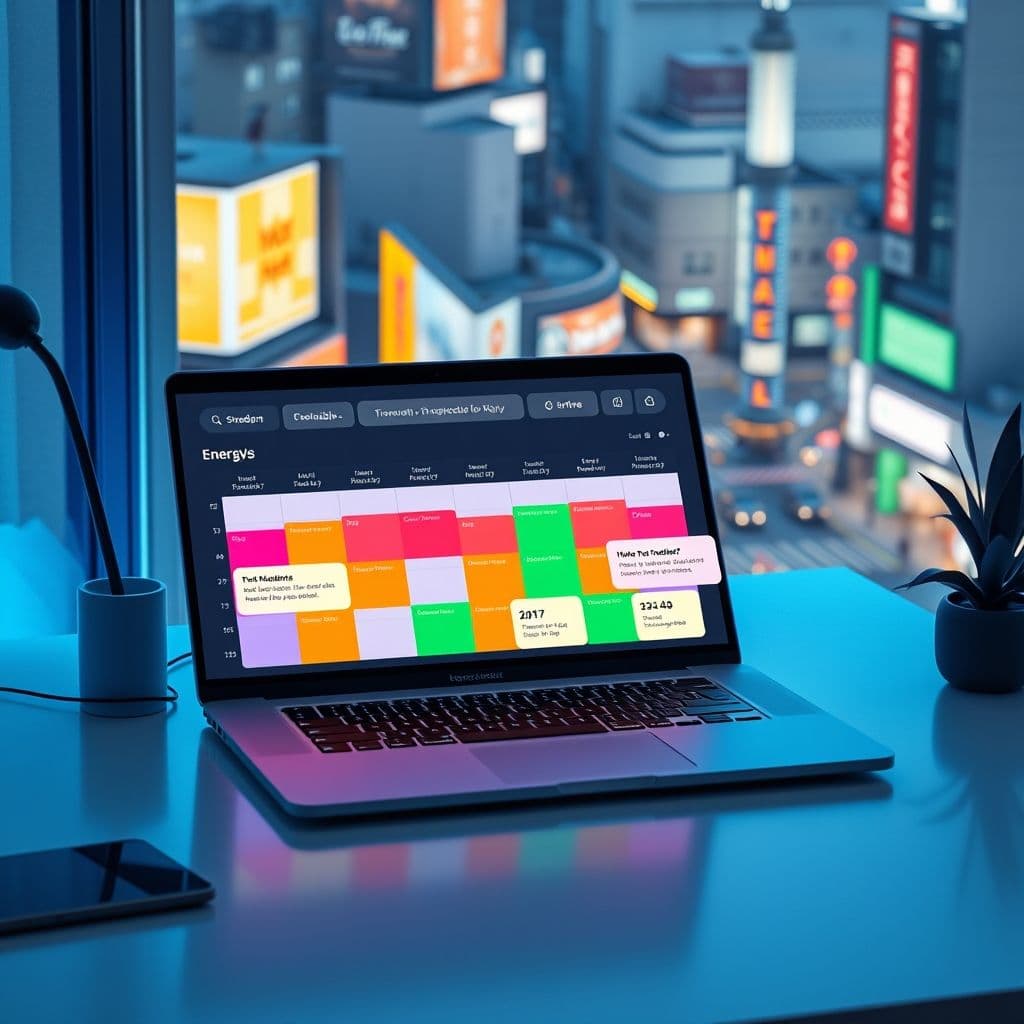Time Management for Busy College Students: A Potential SaaS Solution

College students today are juggling more than ever—multiple internships, heavy course loads, extracurriculars, and even side hustles. The common refrain isn't just about finding time, but also the energy to manage it all. A recent viral TikTok from a triple-major student with nine internships revealed a structured approach that works for her, but what about everyone else? This article explores the universal struggle of student time management and envisions how a specialized SaaS platform could provide a scalable solution.
The Problem: Time and Energy Management in College
The core issue isn't just scheduling—it's the unsustainable energy drain. Comments on the TikTok video like 'not even time girl how do u find the ENERGY 😭' highlight this perfectly. Students face:
- Overlapping commitments (classes, internships, orgs) with rigid schedules
- No standardized way to account for energy levels across tasks
- Difficulty personalizing systems like '8-hour increments' shown in the video

Hypothetical SaaS Solution: Smart Student Scheduler
Imagine a platform that combines:
1. **Adaptive Time Blocking**: Automatically structures your day based on class/internship schedules (like the video's 8-hour increments) but adjusts when deadlines shift.
2. **Energy Mapping**: Uses wearable integration or manual input to suggest high-focus tasks (e.g., coding projects) during peak energy windows identified from your patterns.
3. **Academic Sync**: Pulls syllabi deadlines to auto-prioritize study sessions before exams or project due dates.

Why This Could Work
- **Personalization**: Unlike generic apps, it would account for student-specific variables like semester changes or internship hours.
- **Energy Awareness**: Addressing the top comment concern by making rest/recharge as visible as task completion.
- **Prevent Burnout**: Proactively flagging overloaded weeks (e.g., finals + internship deadlines) could help students renegotiate commitments early.
Conclusion
Time management systems like the viral 8-hour block method work when personalized—but that's the catch. A SaaS tool designed specifically for the fluid, high-pressure reality of student life could democratize this success. By blending scheduling with energy awareness and academic integration, such a platform might finally answer the exhausted cry of 'how do you have the energy?'
Frequently Asked Questions
- How would this differ from existing calendar apps?
- Unlike generic tools, it would auto-adjust for academic cycles (semesters, exams), integrate energy tracking, and prioritize student-specific tasks like internship hours vs. study sessions.
- Could this really prevent burnout?
- By making energy depletion as visible as missed deadlines, students could redistribute workloads before crisis points—especially if the tool suggests when to say 'no' to new commitments.
- What about students with irregular schedules (e.g., night classes)?
- The hypothetical system would adapt time blocks based on actual availability rather than forcing a 9-5 structure, with 'energy zones' shifting to match atypical hours.


